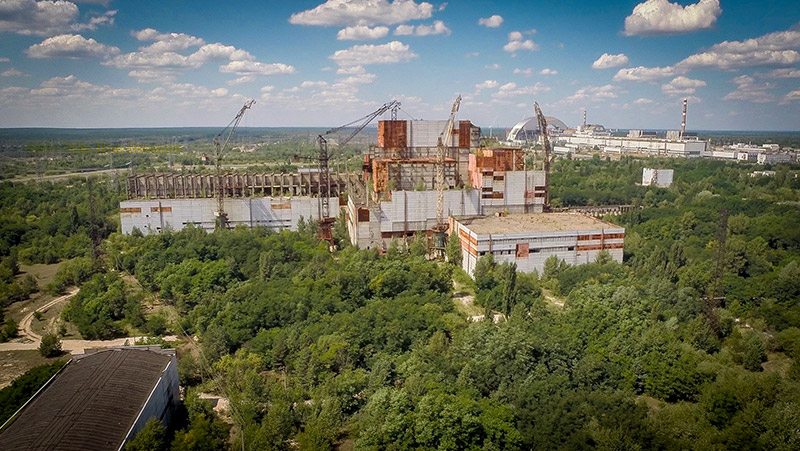
Radiation is harmful to living things. Human exposure to radiation can lead to death. However, plants are known to be less susceptible to radiation than animals. Why are plants not affected by radiation? Studio Thompson, a senior lecturer at Westminster University, commented on these questions and caught the eye.
The Chernobyl nuclear power plant accident is one of the worst nuclear power plant accidents in the world. It caused a lot of damage, including the establishment of a 2,600 km2 restricted area. However, such an off-limits zone at the Chernobyl nuclear power plant is actually a nature reserve. There are many wild animals such as wolves. It is also said that the original plants were not killed in the Chernobyl nuclear accident, and vegetation was restored within three years even in the area with the greatest radiation damage.
Why are plants not exposed to radiation damage? The answer to this question requires understanding how radiation emitted by nuclear reactors affects living cells. Radioactive substances are unstable entities that constantly emit high energy particles and electromagnetic waves. To destroy the cellular structure of animals and plants. Most of the cells also recover from damage, with the exception of DNA, which is responsible for genetic information. Damage to DNA caused by radiation can lead to cancer or death immediately if radiation doses are high.
It is said that DNA damage is fatal to animals because the animal cells and body structures are highly specialized and thus inflexible. Animals have numerous cells and organs, each with a different role, and only if they cooperate with each other to sustain life. The body of an animal is like a complex machine and dies when any organ, such as the brain, heart, and lungs, is lost.
Plants, on the other hand, grow more flexible and organic than animals. Plants cannot move on their own, so they are forced to adapt and grow. Like animals, not all body structures are defined from the beginning. Even of the same type, depending on soil conditions, climate, and other plant influences, there are differences in how to grow deeper roots, lengthen stems, and make leaves grow, and can change body structure with high degrees of freedom.
Unlike animal cells, plant cells are free to create new cells they need. The reason why gardeners cultivate plant stems and sprouts in new locations is due to the ability of plants to create organs such as roots, stems, and leaves that they need to suit their situation. Even if cells are damaged by radiation by the ability of these plants, unlike animals, plants do not die and continue to grow.
In addition, radiation can cause cancer, but cancer metastasis in plants is hampered by the cell walls of plant cells. Therefore, mutant cancer cells can spread widely and cause fatal disorders, so plants can survive in places where radiation damage is great.
Interestingly, several plants in the Chernobyl off-limits have mechanisms to protect DNA from a molecular level as well. This is believed to be the result of adaptation to high concentration radiation. Since the Earth in the past has had far higher radiation levels than it is now, plants in the Chernobyl off-limits may be using abilities dating back to ancient times to survive. Related information can be found here .


















Add comment